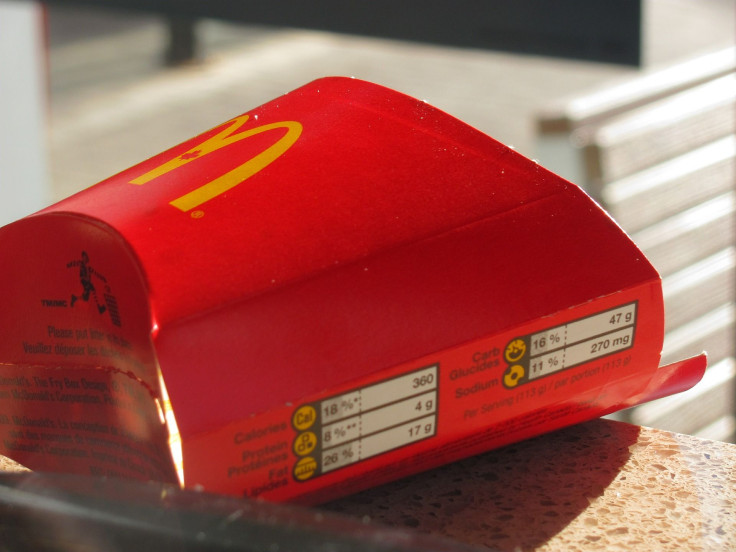McDonald's US Chief Reassures Food Safety After E. coli Outbreak

McDonald's went into a full damage-control mode after its Quarter Pounders burger has been linked to an E. coli outbreak, with the company's USA President Joe Erlinger reassuring consumers that the item has been promptly removed from the menu and its food is safe to eat.
"We are very confident that you can go to McDonald's and enjoy our classics," McDonald's USA President Joe Erlinger said on NBC's "Today" Wednesday. "I want to say to our consumers that you can confidently go to McDonald's today," reported CNN.
Late Wednesday, the U.S. Department of Agriculture identified onions used in the burgers as the likely source of the outbreak, and that one of its state partners is testing samples of the beef for E. coli.
The company asserted that it is taking decisive action to prevent the further spread of the outbreak.
"Across the McDonald's System, serving customers safely in every single restaurant, each and every day, is our top priority and something we'll never compromise on," the company stated.
During an appearance on NBC's "Today" show, Erlinger highlighted the company's swift action to remove the Quarter Pounder from its menu in regions affected by the outbreak. "Given the recent events of the past 24 hours, our priority is to reinforce the confidence of American consumers," he stated.
"...If there has been contaminated product within our supply chain, it's very likely worked itself through that supply chain already."
Both the U.S. Centers for Disease Control and Prevention (CDC) and McDonald's are closely examining the company's supplies of slivered onions and beef patties in an effort to identify the exact cause of the outbreak.
The CDC issued a food safety alert on Tuesday following an outbreak that began on Sept.27, causing one death, 10 hospitalizations and reports of 50 individuals falling ill across the West and Midwest.
McDonald's initial findings from the investigation indicate that a subset of illnesses may be linked to slivered onions used in the Quarter Pounder and sourced by a single supplier that serves three distribution centers.
McDonald's stopped using fresh slivered onions and quarter pound beef patties in several states while the investigation is ongoing to identify the ingredient causing illness.
McDonald's stores in Colorado, Kansas, Utah, Wyoming, and portions of Idaho, Iowa, Missouri, Montana, Nebraska, Nevada, New Mexico, and Oklahoma have temporarily stopped using Quarter Pounder slivered onions and beef patties, the CDC alert said.
Meanwhile, CDC expects to see more cases, Reuters reported citing CDC spokesman Tom Skinner.
"McDonald's has moved rather quickly to take action to, hopefully, prevent as many cases as possible," the report added.
Meanwhile, the company's stock reportedly dropped by 5% to close Wednesday's trading at $298.57, marking its worst decline since the Covid lockdowns in March 2020, while its shares reached an intraday low of $290.83.
Analysts also indicated that the outbreak may put pressure on McDonald's fourth-quarter sales.
According to company spokespersons, McDonald's suppliers regularly test their products and had conducted tests in the dates provided by the CDC related to the outbreak. However, none of these tests identified the E. coli strain associated with the illnesses.
U.S. food safety attorney Bill Marler pointed out McDonald's could face substantial liability for the contamination. "We're still in the early stages of how McDonald's is going to handle this," he said. "But getting the supplier of the onions out – if they're confident that's the source of it – is going to be really important."
There have been two E. coli outbreaks in the past—one at Chipotle Mexican Grill in 2015 and another at Jack in the Box in 1993, that resulted in the deaths of four children. Both the outbreaks had a major negative impact on sales for those chains.
Raymond James analyst Brian Vaccaro said Chipotle took a year and a half to stabilize its business after the outbreak, while Jack in the Box experienced declining sales for four consecutive quarters.
The E. coli O157:H7 strain associated with the current McDonald's outbreak is the same strain linked to the Jack in the Box incident.
Shari Shea, director of food safety at the Association of Public Health Laboratories, warned that this strain can cause "very serious disease," particularly affecting the elderly, children, and individuals who are immunocompromised.
© Copyright IBTimes 2024. All rights reserved.




















